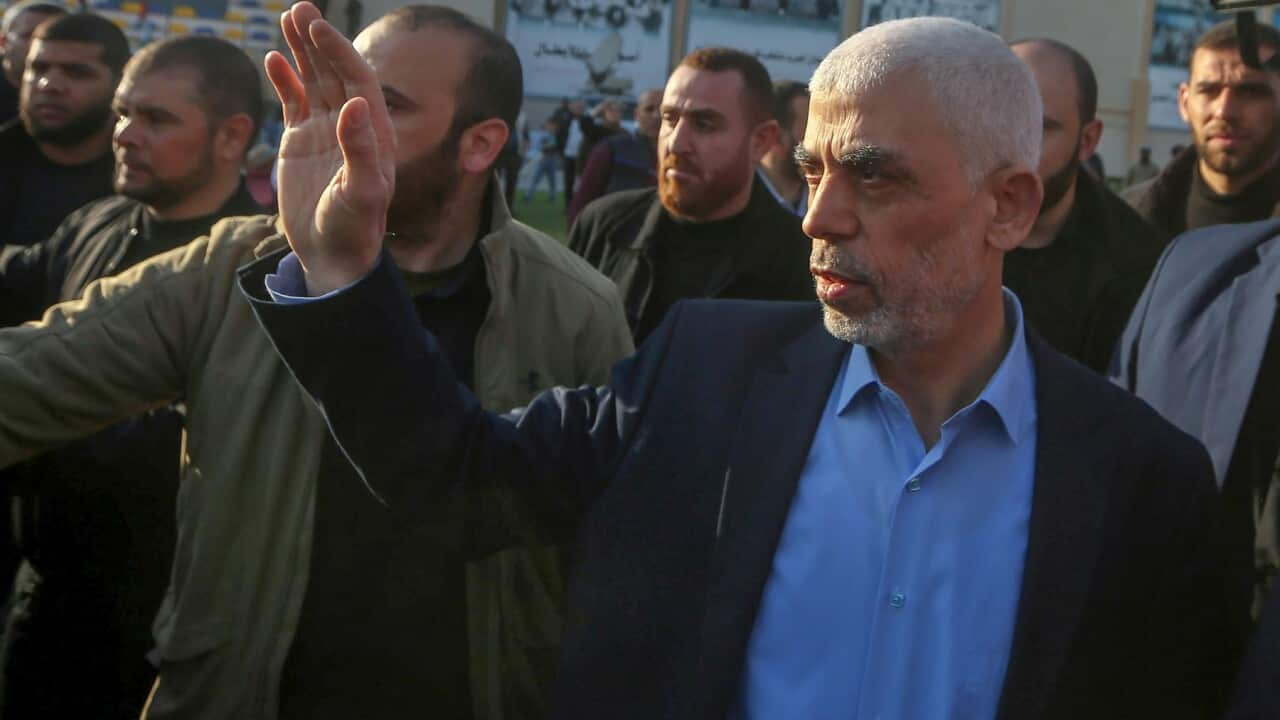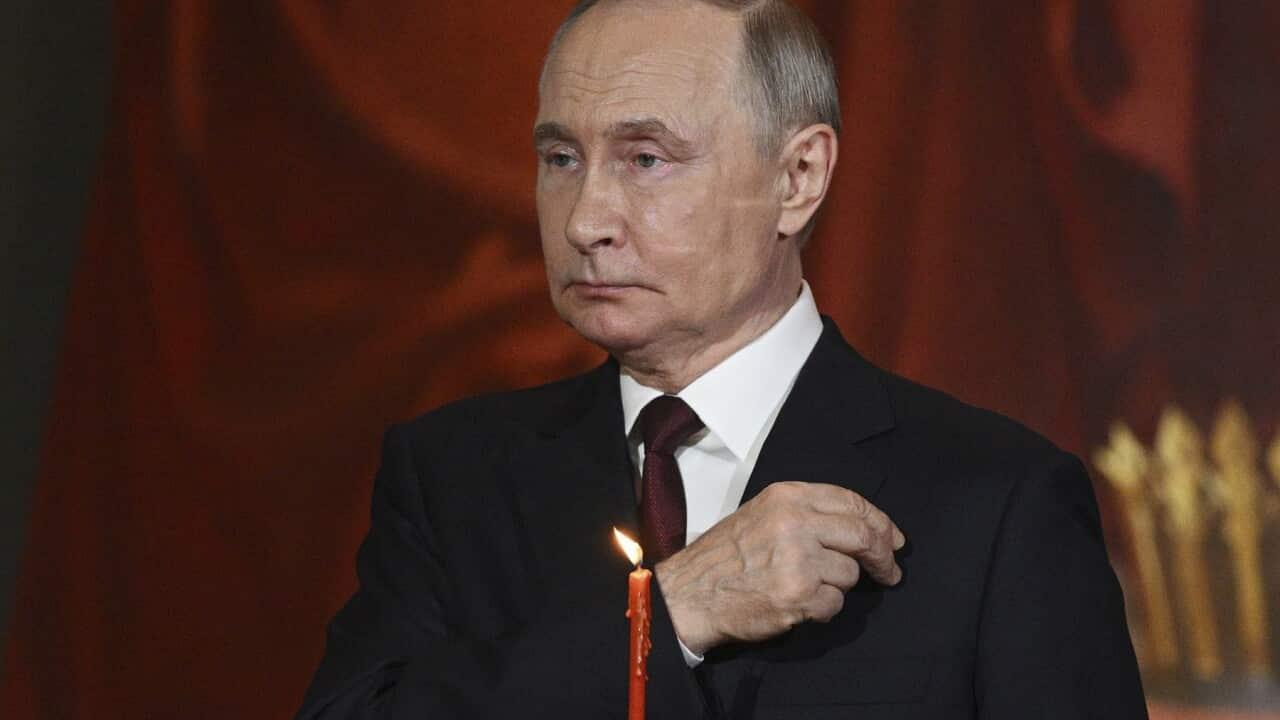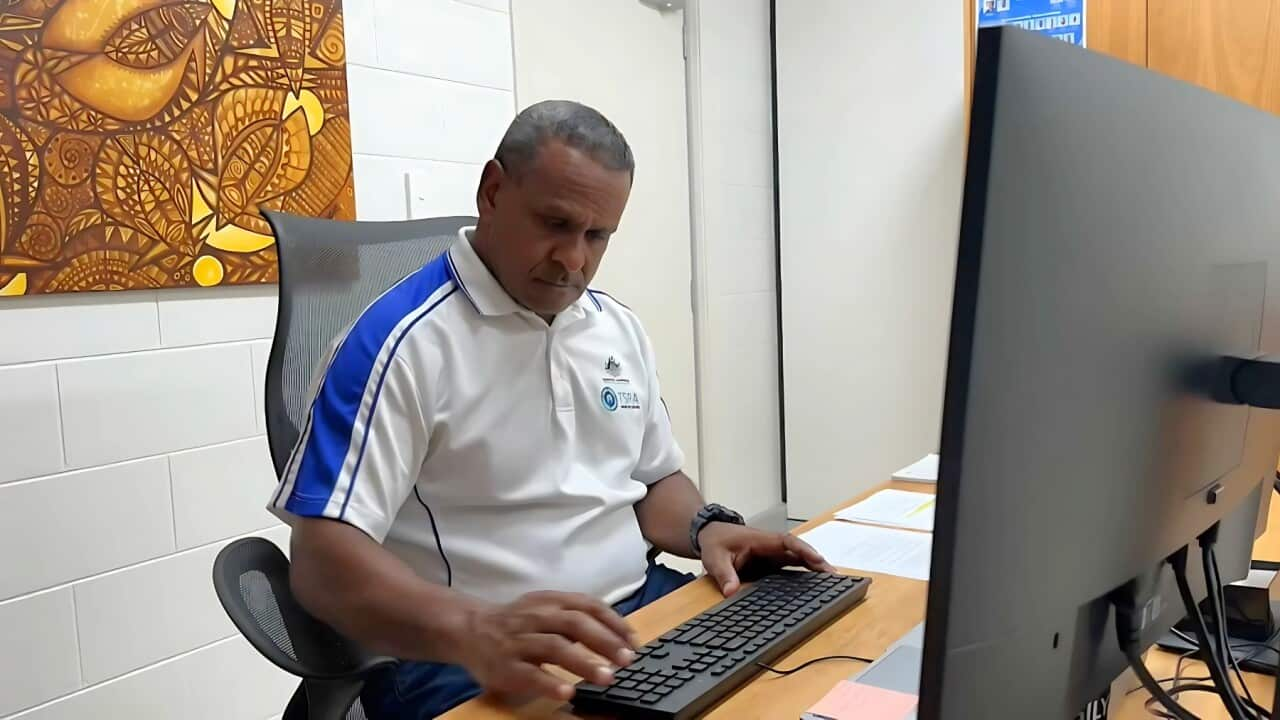TRANSCRIPT:
Yahya Sinwar has been the Hamas leader in Gaza for the past seven years.
After his appointment in 2017, Mr Sinwar told Palestinians he would fight for their liberation.
"Today, our people are launching a new phase of their history of national struggle and fight, on the way to freedom and return. Today our people from the whole nation, from Gaza, from the West Bank, from the occupied lands in 1948, and from other countries, are going out to launch this new phase and to correct the path."
Yahya Sinwar has now been chosen as the political leader of the group, after the killing in Iran of the previous Hamas chief Ismail Haniyeh.
The move is being seen as an act of defiance towards Israel.
Previously sentenced to four consecutive life sentences in prison for killing two Israeli solders, Sinwar was released in 2011 as part of a prisoner exchange with Hamas.
In 2015, the U-S State Department designated Mr Sinwar a global terrorist, prohibiting its citizens from engaging in transactions with him.
He has also been sanctioned by the United Kingdom and France.
More recently, International Criminal Court prosecutors have issued an arrest warrant against Sinwar on charges of war crimes, alongside Israeli Prime Minister Benjamin Netanyahu.
He has been in hiding in Gaza since October, defying Israeli attempts to kill him - but Israel spokesman Rear Admiral Daniel Hagari says they don't plan to give up.
"Yahya Sinwar is an arch terrorist responsible for one of the most horrible terror acts in history, the 7th of October. There is only one place for Yahya Sinwar, it's next to Mohammed Deif, next to a Ghandour, next to Ayman Nofal (Hamas commanders Israel claimed it has killed), next to all the terrorists that were responsible for the 7th of October. This is the only place we are planning for Yahya Sinwar."
His appointment has come amid Israel's continued air assaults on Gaza.
Israel has continued its bombing campaign, with the United Nations Office for the Coordination of Humanitarian Affairs reporting three strikes on Gaza schools within a 48 hour period.
There are also f ears of a wider regional escalation of conflict.
An Israeli air strike on a house in the town of Maifadoun in Lebanon has killed four people.
Hezbollah has also launched drone strikes on towns in northern Israel, injuring two.
Secretary General of Hezbollah Hassan Nasrallah says they had no choice but to act.
Arabic then vo: “No one can ask, whether in Lebanon or outside Lebanon, to treat the aggression that happened last Tuesday as an ordinary aggression in the context of the battle that has been going on for ten months. So our response is coming, God willing. Our response will be strong, and effective. Between us and them (Israel), there are only the days, nights and the field.”
The killing in Iran of the former Hamas leader Ismail Haniyeh has drawn threats of revenge by Tehran.
Israel has not claimed responsibility, but Daniel Hagari says they will not wait for a terror attack in Israel before acting against Iran.
"We are looking on this Iranian network that plot a deadly explosive inside Israel, and we will act against the Iranian terror wherever it is. We will not expect, we will not, we will not get an Iranian explosive device here and not do anything. We will act determinedly against the Iranian terror wherever it is."
The appointment, labelled by Hamas sources as a message of defiance, is likely to reinforce Prime Minister Benjamin Netanyahu's insistence that Israel must pursue its campaign in Gaza to the end.
But Deputy Spokesperson for the UN Secretary-General Farhan Haq says many people in Gaza are too exhausted and uncertain to follow Israeli evacuation orders.
"The World Health Organisation (WHO) reports that mass displacement in Gaza is having a grave impact on public health, with overcrowding, a lack of proper shelter, and poor water, sanitation and hygiene conditions increasing the dangers of communicable diseases. WHO says overcrowding is also raising the risk of mass casualties in attacks on heavily populated areas. Meanwhile, the agency warns that the number of patients in need of medical evacuation outside Gaza is expected to increase, given the ongoing fighting and the shrinking capacity of the health system."
Despite these tensions on multiple fronts, US Secretary of State Antony Blinken has continued to push for a ceasefire.
"We continue to work intensely to de-escalate tensions in the Middle East and to prevent the spread of conflict. Over the past few days, we've been in constant contact with partners in the region and well beyond. In those conversations, we've heard a clear consensus. No one should escalate this conflict. We've been engaged in intense diplomacy with allies and partners, communicating that message directly to Iran."
Secretary Blinken says Mr Sinwar remains an influential figure in the talks.
"He has been and remains the primary decider when it comes to concluding a ceasefire. And so I think this only underscores the fact that it is really on him."
But despite Mr Blinken's placement of responsibility almost solely on the shoulders of Hamas' new chief, some experts say Israel's assassination of his predecessor signalled their own desire to delay a ceasefire deal.
Middle East Council on Global Affairs expert Adel Abdel Ghafar says killing Hamas' chief negotiator was not conducive to peace.
"This act of assassination really highlights how Israel is becoming more intransigent, and perhaps does not want to have any ceasefire talks."
The United States says the task to achieve a ceasefire remains a priority.
Australian Foreign Minister Penny Wong says a ceasefire has never been more urgent.
"I again endorse what he has said, urging all to de-escalate. And like him, Australia also underlines the risks to all in the region to escalation and of miscalculation."













